June 26, 2014
Howard Henry Baker, Jr. died today.
Few people appreciated who he really was. I did.
CBS News Radio at 2 PM just called him a "Texas Republican." They were half right.
He was a Tennessean. An East Tennessean. A lawyer, called "old two to ten" for his ability to win light sentences for people convicted of murder.
During the Watergate hearings, high school classmates said he reminded them of me (or I resembled him). I thought it was a compliment.
Then I read reporting by the Washington Post's Woodward & Bernstein, about how Baker helped Nixon behind the scenes.
Then I went to East Tennessee as a journalist, and saw strip mines on his land -- coal mined and burned at TVA's Kingston power plant -- destroying streams and lives.
The article that I wrote has not yet been published. At age 20, the Fund for Investigative Journalism supported me, a Nashville Tennessean Pulitzer Prize winning investigative reporter advised me, but the full story of Baker and East Tennessee coal may await my memoirs.
Suffice it to say that Baker and his cronies benefitted from TVA coal contracts. A lot.
They ripped off ratepayers to the tune of more than $300 million dollars, including coal quality fraud later confirmed by the U.S. General Accounting Office. In 1975, Ben A. Franklin reported in the New York Times that people became millionaires selling slag piles to TVA. In 1978, the plant superintendent told me TVA was obliged to use dynamite to remove slag from the boilers.
This is the same plant whose liquid coal dam collapsed December 23, 2008 after decades of lax oversight (including the six days of overnight hearings chaired in 1975 by Former Senator Howard Henry Baker, Jr., which excluded testimony by Save Our Cumberland Mountains about the Kingston plant). The TVA coal waste inundated homes and destroying creeks and groundwater with 5.4 million gallons of liquid coal ash. See photos below.
One time, in Baker's Senate Republican Leader press conference, I asked Baker a long boring question about coal oligopolists turning the table on TVA coal purchasing monopsonists and electric utility monopolists.
Always charming, Baker looked at me, winked and replied, "Perhaps."
He knew.
In 1977, at age 20, I had watched from the U.S. Senate staff gallery as 8Baker successfully amended the Clean Air Act to protect the pollution at TVA's power plant, and his coal contracts, without disclosing to Senators that he had an interest in the power plant's coal -- his former partners owed him $1,000,000, to be paid out of proceeds from TVA coal contracts.
TVA quickly ruled that Baker had no conflict of interest, because he had no privity of contract -- is contracts were with the mining companies, not TVA.
Whitewash?
In six days of TVA oversight hearings in 1975, chaired by Baker as the TVA expert, East Tennessee environmentalists from Save Our Cumberland Mountains were the only group forbidden to testify. SOCM had WBIR-TV video of coal quality fraud, involving "layer loading" by companies mining on Baker's family land.
Another whitewash?
An earlier hearing by a Tennessee Congressman saw testimony admitting that small coal operators used common sales agents to raise prices, with Rep. Joe L. Evins joking with one, "You believe in collective bargaining for your industry." Price-fixing was tolerated and testified about, with no penalty. No pain for big gains.
With Baker's influence, no fraud or antitrust indictments were ver brought against Tennessee coal operators, although the evidence supported it.
Howard Baker is the reason.
Howard Baker exemplified conflict of interest in American environmental and politics.
Howard Baker was a walking conflict of interest, albeit a very short one.
If he wasn't poking holes in the Clean Air Act, he was weakening wetland protections. His two staffers on environmental matters -- Rick Herod and Jim Range -- were from his corporate law firm, and went back there.
Howard Baker, like some of our crew of leaders in St. Augustine, Florida today, was guilty of using government as a cash register for his business -- both coal and law.
Howard Baker got away with it for eighteen years in the U.S. Senate.
Howard Baker always enjoyed good press -- he ran for President and few saw through him.
Other than United Mine Workers' Journal and reporters Robert Schackne of CBS and Jon Margolis of the Chicago Tribune, most journalists believed Howard Baker's cover story as a righteous dude. Jon Margolis wrote that Baker and other East Tennessee businessmen and politicians were in pari delicti: "They rip off taxpayers together."
Baker's flak, Ronald McMahan, said to me when I first arrived in East Tennessee investigating coal in 1978, "I KNOW WHO YOU ARE AND WHAT YOU ARE!" Rebarbative Republican Ronald McMahan was later editor of the Knoxville Journal, where he covered Baker's assets.
As a young newspaper editor, I investigated endemic corruption, including TVA, Anderson County government and the U.S. Department of Energy, which emitted 4.2 million pounds of lethal mercury into the creeks and groundwaters and into workers' lungs and brains, without fences, warnings, respirators or decent respect for human life. Then-Rep. Albert Gore, Jr. held investigative hearings, but there was nothing from Senator Howard Henry Baker, Jr., who grew up just a few miles from Oak Ridge and long served on the Joint Committee on Atomic Energy.
After two years as editor of the Appalachian Observer, in a corrupt county in the middle of Howard Baker country, I left East Tennessee in 1983 for Memphis and went to law school. Then I served as a law clerk for the Chief Judge of the U.S. Department of Labor in Washington, D.C., and then I labored as an AFL-CIO foundation lawyer and then as a whistleblower lawyer. I learned more about Baker and his law firm.
I saw and photographed large lighted ads inside Nashville airport advertising his law firm's influence in Japan for Gibson Guitars, at a time when he was U.S. Ambassador to Japan. How louche.
Then Baker's corporate law firm, now Baker Donelson, actually sued the Department of Labor, using Department of Energy, seeking to crush and deny any whistleblower investigation to Oak Ridge physician Dr. William K. Reid, M.D., an ethical oncologist, hematologist and internal medicine physician who found high levels of heavy metals and cancers in his patients, connecting it to workplace and community exposures from polluting Oak Ridge plants.
Yes, DOE, our federal government, paid Baker's law firm to harass another federal agency, USDOL, in a bogus attempt to deny Dr. Reid justice. The lawsuit failed but the tactic worked, distracting our efforts with federal funds.
Howard Baker's corporate law firm client in the case in quo was Martin Marietta, later Lockheed Martin. My clients and I helped deny contract renewals by DOE to Lockheed Martin at five badly polluting and contaminated nuclear plants with 20,000 workers in three states.
At one of those Oak Ridge plants, the Y-12 Nuclear Weapons Plant, the largest mercury pollution event in world history took place. Howard Baker long served on the Joint Congressional Atomic Energy Committee, but barely uttered a peep about the pollution, which our Appalachian Observer newspaper and then-Rep. Albert Gore, Jr. labored to expose. Another of those Oak Ridge plants (K-25 Gaseous Diffusion uranium enrichment plant) -- once the largest building on this planet -- has ceased to exist. It is being decontaminated, deconstructed and subsidiary, with subsidiary buildings scheduled next for d,d & d.
Then I saw my Tennessee law license suspended in 2004. A panel of the Tennessee Supreme Court's Board of Professional Responsibility found First Amendment protected activity in criticizing the Department of Labor and unfair judges. But that finding was reversed by Howard Baker's specially-appointed cousin, Judge Richard Ladd of Kingsport, Tenn., who was the son of the Anderson County, Tennessee Purchasing Director, A.B. "Blye" Ladd, who had received gifts from government contractors in violation of Tennessee law, a fact that I and my counsel had revealed in response to declaratory judgment action brought by school bus contractors trying to defend their contracts. The Tennessee Supreme Court upheld the suspension, and Judge Ladd's questioned refusal to recuse himself, even after he wrote angrily about my work as a journalist ("monsters in Oak Ridge") and filed a self-serving affidavit trying to excuse what he said from the bench and in writing. I was then disbarred two years later.
My Tennessee Bar complaint against Howard Baker and his conflicts of interest was inexplicably lost and never acted upon by the Board of Professional Responsibility of the Tennessee Supreme Court.
Howard Baker Highway survives him. A Republican lawyer once told me it was so named because "it's so crooked."
Howard Baker did not want PresidentRonald Reagan to say, "Mr. Gorbachev, tear down this wall." Reagan said it anyway, thank God.
As Reagan's White House Chief of Staff, Baker was always the diplomat, protecting Reagan's reputation, and making contacts useful for his law firm.
Again, Howard Baker died today.
Let the hagiography begin, from the usual sources of such fluff and stuff.
The New York Times reports that "Mr. Baker said his biggest contribution to the environment was the creation of the Big South Fork National River and Recreation Area, a 125,000-acre national park that overlaps Tennessee and Kentucky and protects the Big South Fork of the Cumberland River. The park was created by Congress in 1974." UMWA Journal reported how the park made big profits for Baker's cronies, including the likes of Ted Q. Wilson, who founded the "Southern Labor Union," a "company union" designed to keep workers from joining real unions. Howard Baker was a union-buster, and that is part of his legacy. No mention of that in any reports thus far.
At least The Washington Post reports that Baker was "raised in a feudal setting," much like the "lord of the manor" -- 40,000 acres of family land called "Brimstone," which he later sold. Baker's grandfather was a judge, his grandmother was Tennessee's first woman Sheriff, and both his father and stepmother preceded him in Congress.
In Tennessee, he was the first Republican ever elected to the U.S. Senate. Baker became s Republican lord of all he surveyed, with two of his apt pupils -- Lamar Alexander and Fred Dalton Thompson -- both succeeding him in the United States Senate.
How cool is that!
He was Senate Republican Leader for eight years, following in the steps of his civil-tongued first father-in-law, Everett McKinley Dirksen, for whom a large marble Senate office building is named.
As one who worked for three U.S. senators during Baker's tenure, I can emphatically agree with Baker's one statement that there were two things he didn't understand: "The Middle East and the House of Representatives."
Howard Baker was, unlike so many of today's politicians, willing to listen and willing to compromise (even if some of those compromises were unethical, and hurt people, like those suffering in Appalachia from strip-mining).
He supported the Panama Canal Treaty, and supported some progressive legislation.
He supported Fair Housing, and he inspired some African-American support, after initially campaigning against civil rights laws.
But he also tried to inspire an African-American to run for President in 1972 to pull support from the Democratic nominee.
He grew up in a culture of dodgy Tennessee politics, and loved to tell stories.
He grew in the job, whether as Senator, White House Chief of Staff or lawyer.
He was a photographer, and had a sense of humor and self-deprecating wit.
Nearly everyone liked him.
Rest in peace, Howard Henry Baker, Jr.
Most Americans hardly got to know him.
Even though I saw his faults, firsthand, I still admire Howard Baker.
"What did the President know and when did he know it?" Great line. Great delivery. Smooth politician.
Baker blew a chance to be on the United States Supreme Court, as John Dean revealed in his book, "The Rehnquist Choice." Nixon liked Baker, who was slow to get back to him, flying to Tennessee to meet with his banker, apparently concerned about his coal deals. Some of the pertinent tapes were withheld due to financial privacy, but will now will likely be unsealed -- the world will learn more about Baker's coal deals, at last.
If only Howard Baker weren't so crooked.
If only Howard Baker had cared about the grinding poverty of Appalachia, and done something besides help corporations and the wealthy. He could have been more of a healer, and less of a wheeler-dealer. His life would have made more of a difference to average Tennesseans, like the poor people in Appalachia, who were the subscribers to our Appalachian Observer newspaper.
I do forgive Howard Baker, although at times he reminded me of The Rolling Stones' "Sympathy for the Devil." Most of the time, I remembered him as a Coal Man. (In fact, while investigating him in East Tennessee, staying with friends, the Top 40 radio station woke me up every morning at the same time with the hit song, "I'm a Soul Man." Upon hearing it the first groggy morning, I thought it might easily 4be re-written about Baker: Heart and soul, Howard Baker was a Coal Man (even as United States District Judge Robert Taylor once remarked to me in the Clerk's office, circa 1978, "This is turning into a coal court!")
An apt question for future writers: "what did Baker know and when did HE know it?"
Howard Baker leaves a widow, former Senator Nancy Landon Kassebaum, his second wife (daughter of 1936 Republican nominee Alf Landon).
He also leaves a 125-year old multinational corporate law firm bearing his name, one that is highly sophisticated and computerized, now with 650 lawyers in 20 cities, with clients that include the Royal Hashemite Kingdom of Jordan and the world's largest arms merchant, Lockheed Martin.
The United States Courthouse in Knoxville, Tennessee was long ago named the Howard Henry Baker, Jr. Courthouse, with an oil painting in the lobby showing Howard Baker as if he were larger than he was in life. (He stood about 5'2").
Imagine, if you will, being an ethical physician suing a nuclear weapons contractor or other party defended by the Howard Baker law firm, entering the Howard Baker Courthouse, with judges chosen by Howard Baker, who chose a Chief Clerk who was the lawyer for Lockheed Martin (who refused to shake my hand upon representing the first whistleblower at Oak Ridge National Laboratory in 1991).
How would you feel? That's East Tennessee -- a beautiful place run by tyrants, a place where the workers and their lawyers are afraid, very afraid, to blow the whistle on the likes of Oak Ridge, Tennessee nuclear weapons plants to this day.
Thanks to Howard Baker and his legacy, East Tennessee remains a third world country, an anti-labor tyranny, a place where they renamed "Labor Day" in Knoxville as "Boomsday," in hopes of erasing labor unions.
As Juan Ortega y Gassett said, "I am me and my surroundings." ("Yo soy yo y mis circunstancias.")
That repressive environment is NOT one of the legacies of Howard Baker you will likely read in the obituary-hagiographies. It remains to be written in investigative reporting, biographies and my memoirs.
Rest in Peace, Howard Henry Baker, Jr., wherever you are!
"We, the People" hardly knew you.
Copyright 2014 Edward Adelbert Slavin, Jr. All Rights Reserved
Ed Slavin
Box 3084
St. Augustine, Florida 32085-3084
904-377-4998



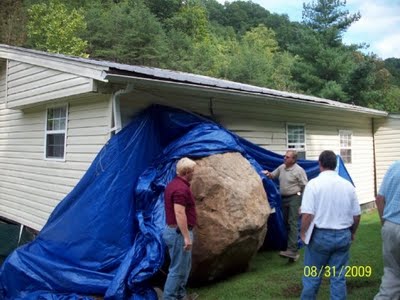
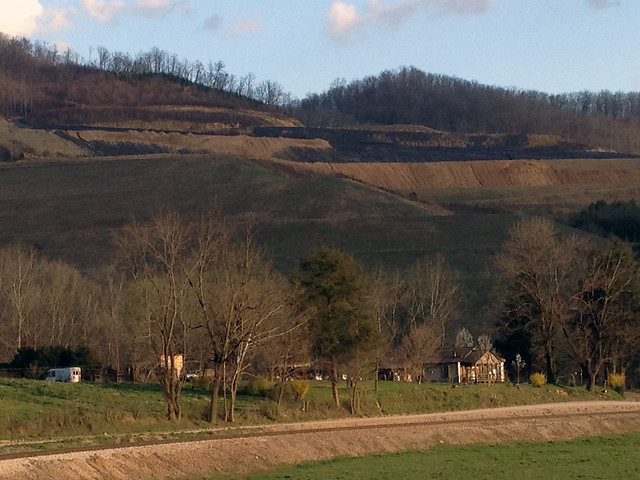
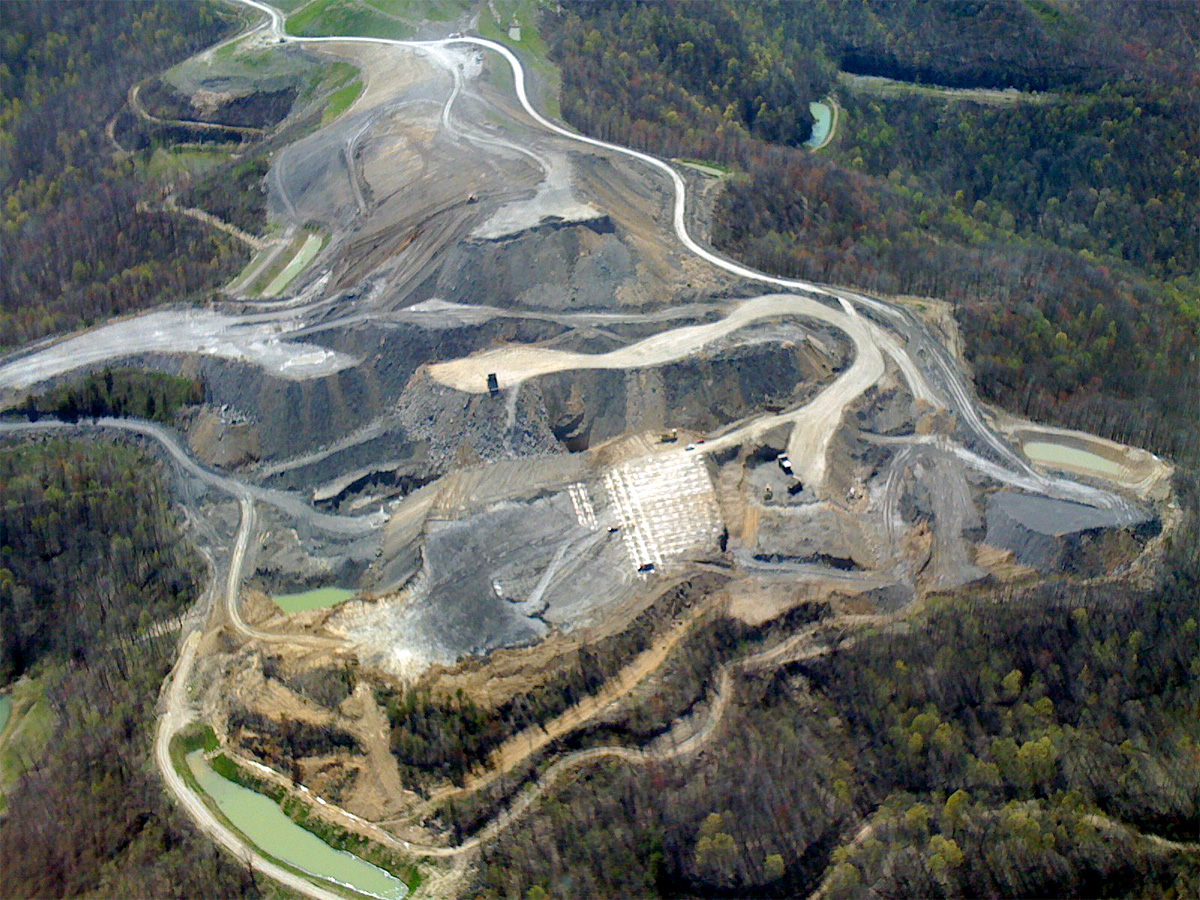








.jpg)

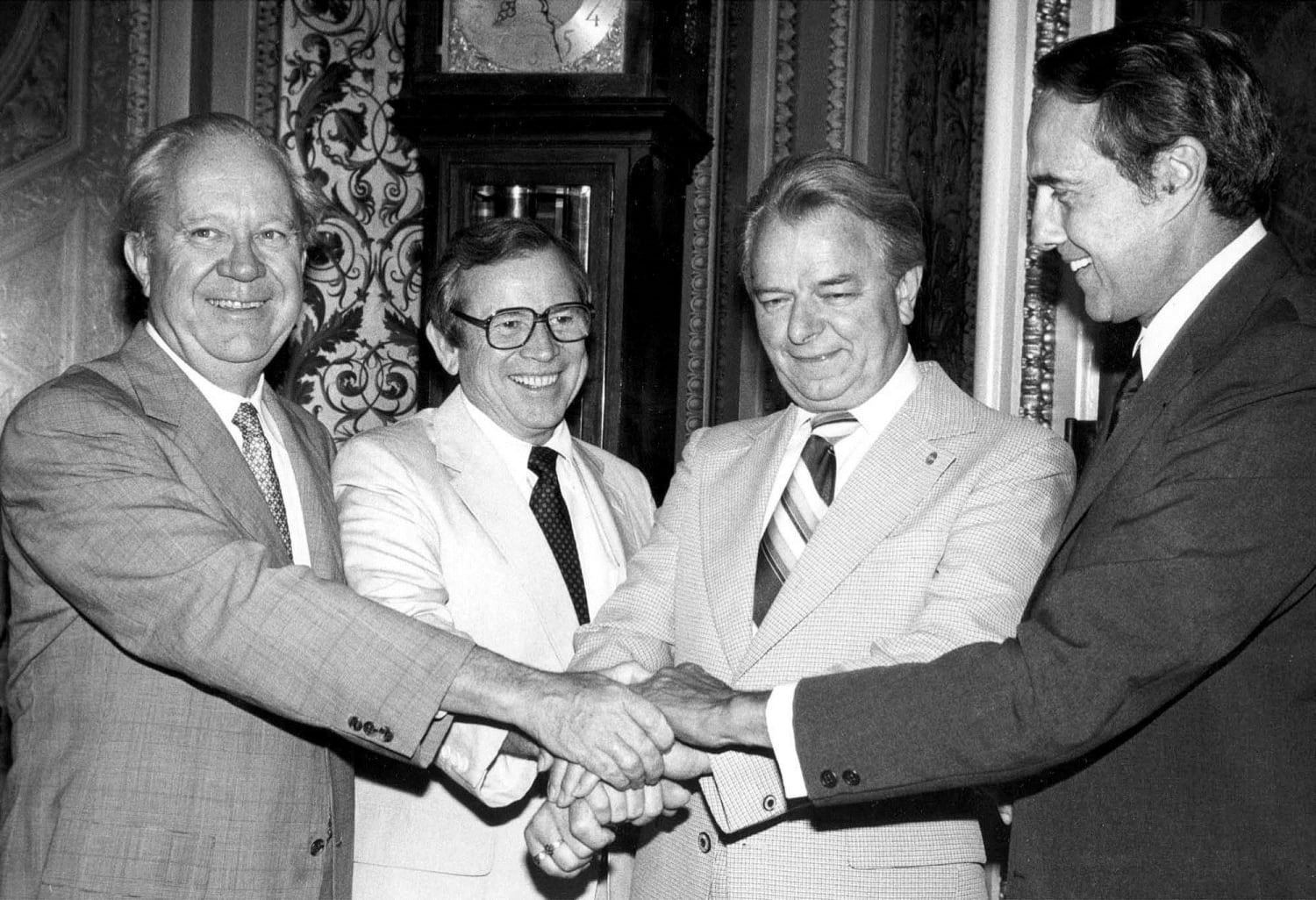
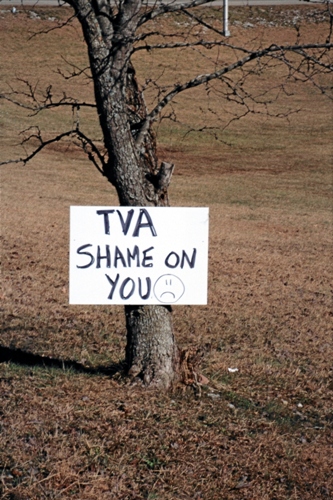


"Did you know that coal provides 64.8% of Tennessee's power? Almost half of the electricty we use everyday comes from coal. The average retail price is 6.97 cents per kilowatt hour. This ranks Tennessee with the 15th-cheapeast electricity in the nation."













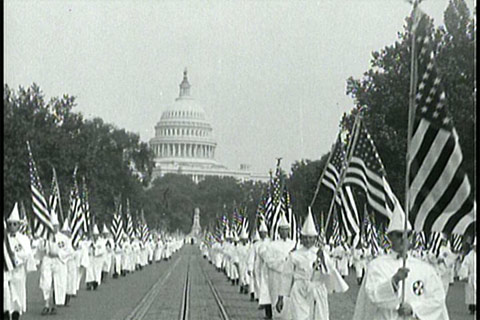


 Dr. James B. Edwards
President Ronald Reagan's first Secretary of Energy, former South Carolina Governor, Dr. James B. Edwards, D.D.S. has died at 87.
Dr. Edwards, a dental surgeon, was asked at his 1981 confirmation hearing, Senator Howard Metzenbaum asked about Republican campaign pledges to dismantle the Department of Energy. AP reported, "But former South Carolina Gov. James B. Edwards Reagan's choice to head the embattled agency was reluctant to repeat that vow at his Senate confirmation hearing. "Isn't it funny how things change after an election?" asked an amused Sen. Howard Metzenbaum (D- Ohio) 'Senator, it's much easier to throw a hand grenade than catch one.'"
Dr. Edwards' pick was counterintuitive, but he joked that as an oral surgeon he knew a lot about drilling.
Dr. Edwards resigned before the Oak Ridge mercury pollution was declassified. Smart career move.
Dr. Edwards went on to be President of the head the South Carolina University of Medicine for seventeen years.
Dr. James B. Edwards
President Ronald Reagan's first Secretary of Energy, former South Carolina Governor, Dr. James B. Edwards, D.D.S. has died at 87.
Dr. Edwards, a dental surgeon, was asked at his 1981 confirmation hearing, Senator Howard Metzenbaum asked about Republican campaign pledges to dismantle the Department of Energy. AP reported, "But former South Carolina Gov. James B. Edwards Reagan's choice to head the embattled agency was reluctant to repeat that vow at his Senate confirmation hearing. "Isn't it funny how things change after an election?" asked an amused Sen. Howard Metzenbaum (D- Ohio) 'Senator, it's much easier to throw a hand grenade than catch one.'"
Dr. Edwards' pick was counterintuitive, but he joked that as an oral surgeon he knew a lot about drilling.
Dr. Edwards resigned before the Oak Ridge mercury pollution was declassified. Smart career move.
Dr. Edwards went on to be President of the head the South Carolina University of Medicine for seventeen years.
 53 years ago today, the KKK killed NAACP organizers, Mr. and Mrs. Harry and Harriette Moore on Christmas Day (her birthday) by bomb under their bedroom in Mims, Florida. They had worked for equal pay for African-American teachers, registered 100,000 African-Americans to vote, and exposed Sheriff-involved murders of African-Amercans.
53 years ago today, the KKK killed NAACP organizers, Mr. and Mrs. Harry and Harriette Moore on Christmas Day (her birthday) by bomb under their bedroom in Mims, Florida. They had worked for equal pay for African-American teachers, registered 100,000 African-Americans to vote, and exposed Sheriff-involved murders of African-Amercans.













.jpg)




 "Did you know that coal provides 64.8% of Tennessee's power? Almost half of the electricty we use everyday comes from coal. The average retail price is 6.97 cents per kilowatt hour. This ranks Tennessee with the 15th-cheapeast electricity in the nation."
"Did you know that coal provides 64.8% of Tennessee's power? Almost half of the electricty we use everyday comes from coal. The average retail price is 6.97 cents per kilowatt hour. This ranks Tennessee with the 15th-cheapeast electricity in the nation."












